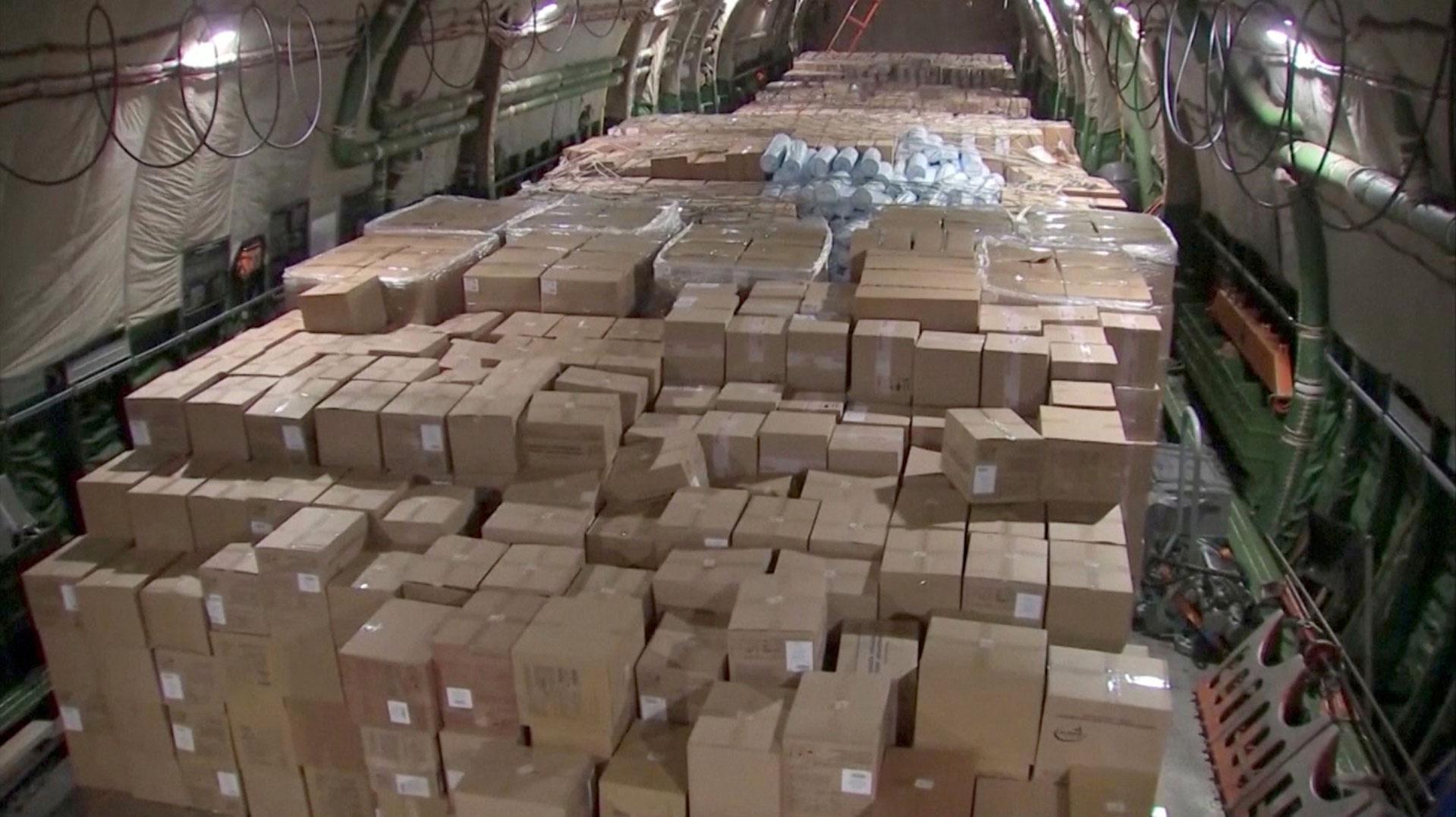Coronavirus most challenging crisis since World War II; US offers sanctions relief to Venezuela; Madrid’s health system under duress
Boxes with medical equipment and masks to help fight coronavirus disease (COVID-19) are seen on board a Russian military transport plane ahead of its departure to the United States of America, at an airdrome outside Moscow, Russia, April 1, 2020, in this screen grab taken from video.
Top of The World — our morning news round up written by editors at The World. Subscribe here.
“This is, indeed, the most challenging crisis we have faced since the Second World War,” United Nations Secretary-General António Guterres said of the novel coronavirus pandemic, as he appealed for global solidarity and cooperation.
As the number of deaths in Europe reach 30,000, US officials warned Americans to expect casualties between 100,000 and 240,000 — if strict guidelines are followed.
There is confusion within the US coronavirus task force over aid shipments. Meanwhile, the Trump administration has accepted humanitarian assistance from Russia, including masks and medical equipment, though Russia itself is dealing with severe shortages. China, too, has offered help where Western countries have failed. But critics warn that Russia’s and China’s motivations are not necessarily altruistic.
And in the Central Asian country of Turkmenistan, which claims it has no cases of COVID-19, the word “coronavirus” has been banned.
Also: Cuba has a history of sending medical teams to nations in crisis
Listen: How the WHO nudges nations to act in solidarity during the COVID-19 pandemic
Trump offers sanctions relief to Venezuela
The Trump administration offered to lift sanctions against Venezuela if President Nicolás Maduro and opposition leader Juan Guaidó agree to a transitional government with lawmakers from both sides. Venezuela has been crippled by a political and economic crisis for years, leaving Venezuelans particularly vulnerable to the pandemic.
And: Why the global recession could last a long time
US drones strike Somali civilians
Amnesty International warns that US airstrikes in Somalia are killing civilians with “zero accountability.” The US has launched hundreds of strikes against Islamist militant group al-Shabab over the past 10 years, but has rarely acknowledged civilian casualties.
“They killed my daughter,” a Somali man told Al Jazeera. “We are powerless and they know it.”
And: Khat traders, farmers take a hit amid coronavirus pandemic
Madrid’s health system under duress as ice rink turns into morgue
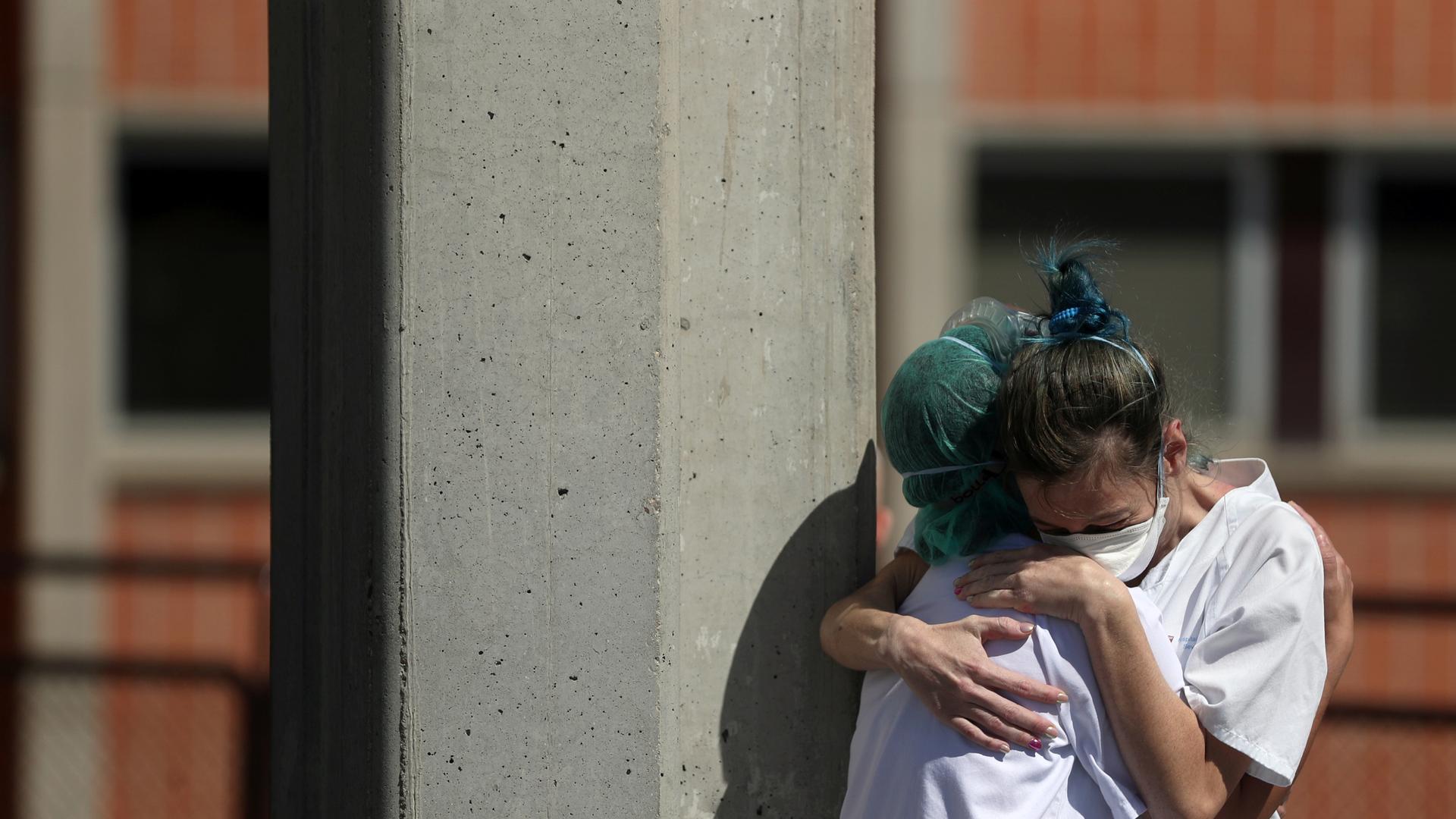
After another exhausting shift at Madrid’s Ramón y Cajal hospital, nurse Corin Pira finally allowed herself to cry — in the shower.
“You feel so frustrated that you start to shed all the tears that you can’t at the hospital because you can’t cry there — tears are also a source of contamination,” she said.
About one in seven of Spain’s confirmed coronavirus cases are health workers, and those on the front lines feel abandoned by the government and hospital authorities.
From The World: How the World Bank is helping developing countries respond to COVID-19
And: The evidence for everyone wearing masks, explained
Pandemic has made social justice issues more personal for this young Florida voter
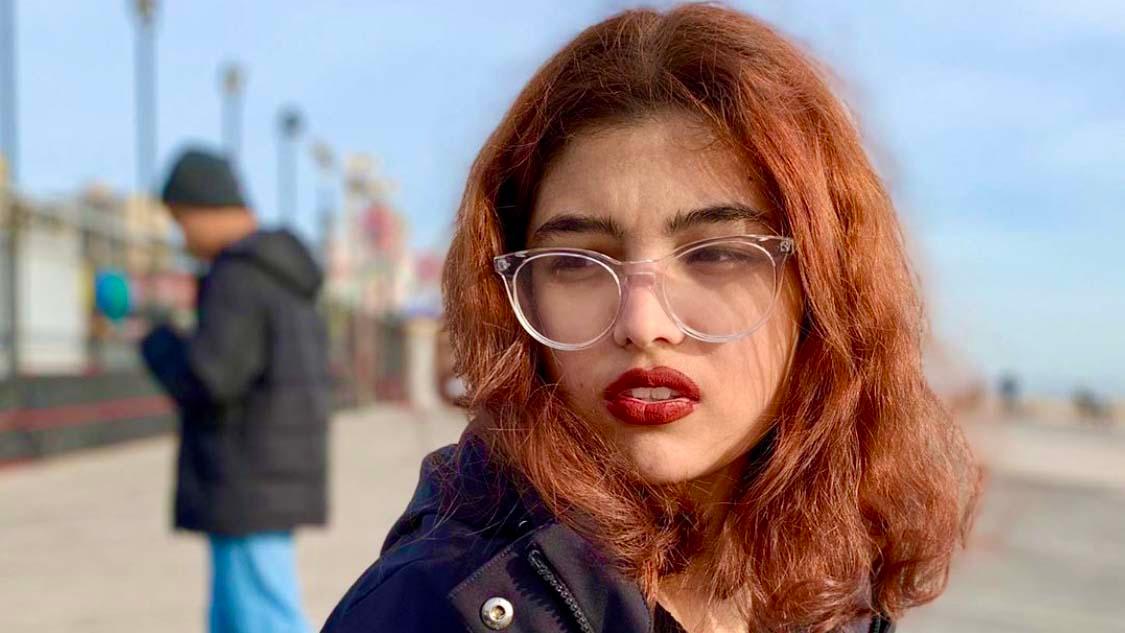
Yaneilys Ayuso, 18, remembers their multicultural studies class during their junior year of high school as the place where they learned about issues that now matter most to them: human rights, racial justice, immigration, women’s rights, and the rights of farmworkers and domestic workers.
These issues have taken center stage since the coronavirus pandemic hit, Ayuso said — and now, they’re even more personal.
From The World: Every 30 seconds a young Latino in the US turns 18. Their votes count more than ever.
Morning meme
Actor Jack Black is here to keep your spirits up with this motivational dance.
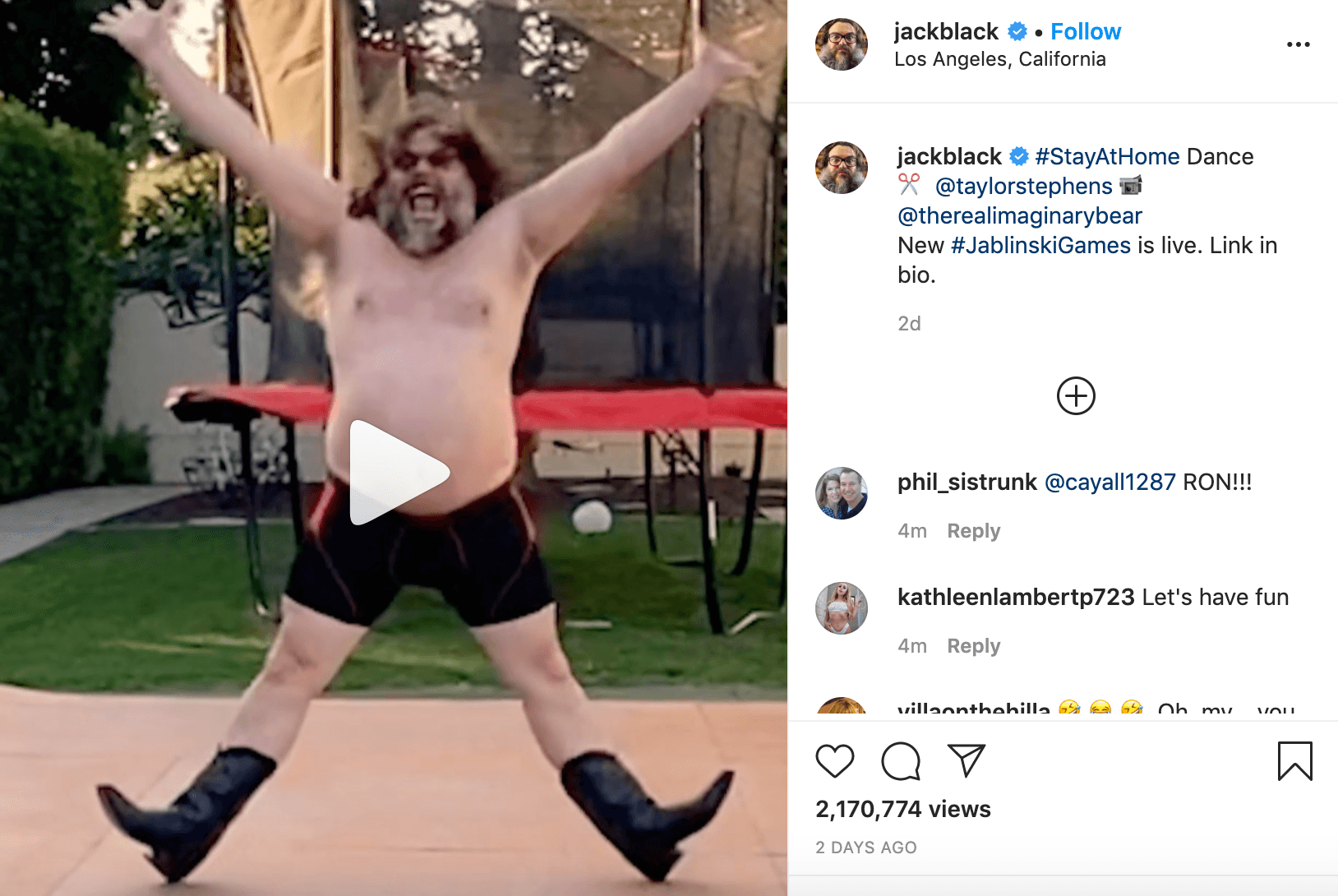
In case you missed it
Listen: China steps up support as US and Europe struggle to contain COVID-19
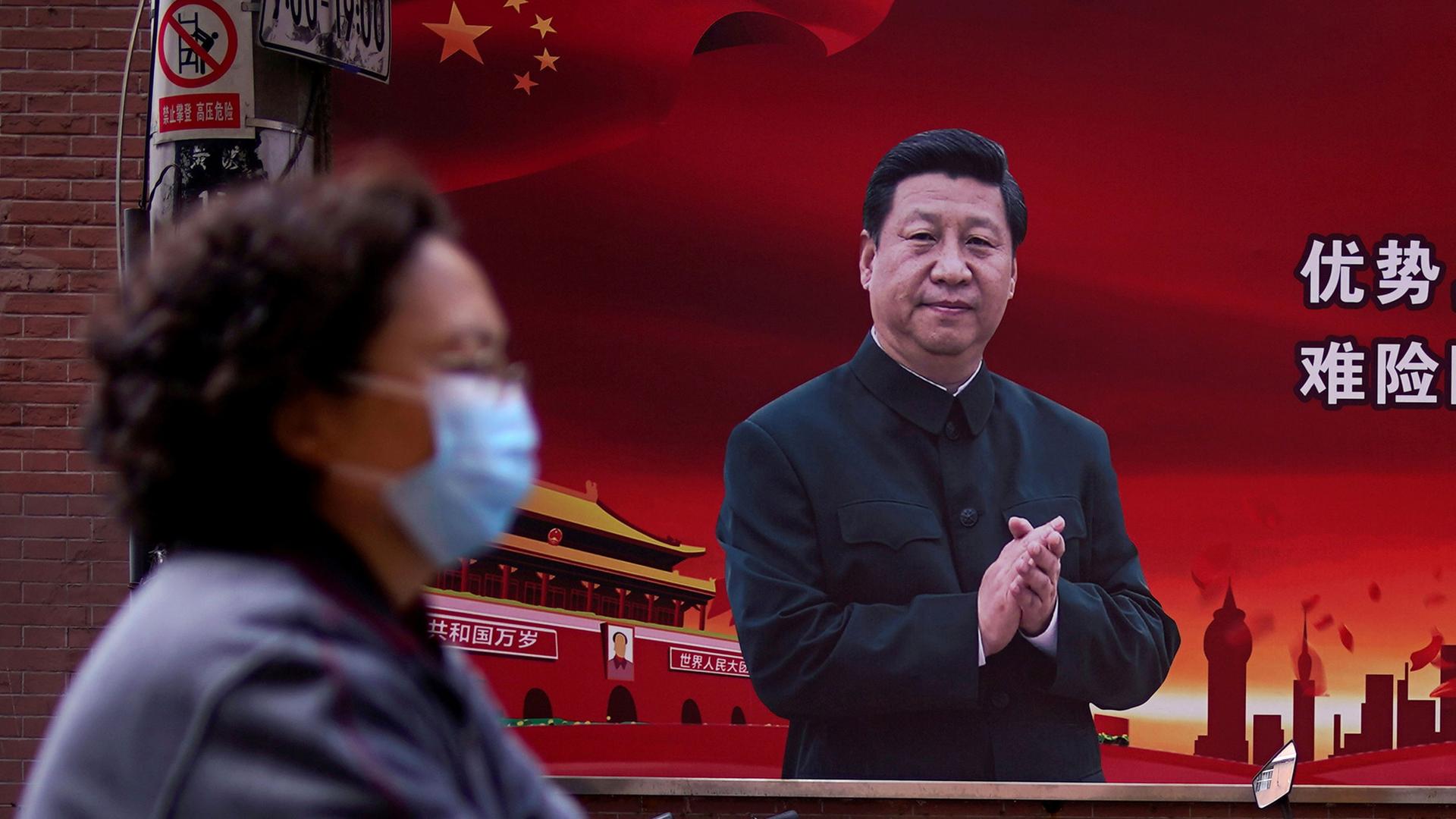
As the US and Europe struggle to contain the coronavirus outbreak, China is sending aid and medical supplies around the world. And, over 70 million displaced people around the world are stuck in overcrowded refugee camps. The coronavirus outbreak is putting a strain on already poor living conditions. Also, archaeologists have discovered the remains of 3,400-year-old ball court in the mountains of Oaxaca in Mexico. The discovery may shed light on how Mesoamerican societies developed.
Don’t forget to subscribe to The World’s Latest Edition podcast using your favorite podcast player: RadioPublic, Apple Podcasts, Stitcher, Soundcloud, RSS.
